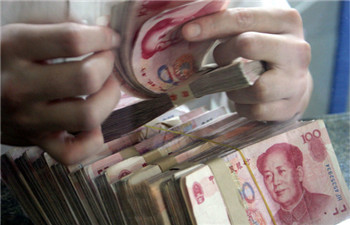
When John Henry bought Liverpool Football Club in 2010, China’s currency was trading at Rmb6.7 to the dollar and heading higher. It would eventually peak in early 2014 at Rmb6 to the greenback.
约翰•亨利(John Henry) 2010年买下利物浦足球俱乐部(Liverpool Football Club)的时候,人民币的汇率是1美元兑6.7元人民币,并且还在升值。人民币汇率最终在2014年初升至1美元兑6元人民币的峰值。
It is doubtful that Mr Henry, who made his fortune as a commodities trader and is best known for purchasing the Boston Red Sox baseball team in 2002, gave much thought to how many redbacks it took to buy a greenback.
以大宗商品交易发家,因2002年买下波士顿红袜棒球队(Boston Red Sox)而闻名的亨利,可能没有认真想过人民币和美元的换算。
But if he does end up selling Liverpool FC for a pretty penny to a consortium led by a Chinese investment group, it will be in part because of what has happened to the renminbi over the past two years.
但如果他最终以大价钱将利物浦足球俱乐部卖给由一家中国投资集团牵头的财团,其中的部分原因将是人民币在过去两年中所经历的事情。
On Monday, China’s central bank set the renminbi’s dollar “reference rate”, around which it is allowed to move plus or minus 2 per cent in daily trading, at 6.6652 — almost 11 per cent below its 2014 peak and back where it was when Mr Henry diversified from baseball into English football.
周一,中国央行将人民币兑美元中间价(在每日外汇交易中,人民币汇率可在中间价上下2%之间浮动)定为6.6652,比2014年人民币汇率峰值跌近11%,大概回落到亨利采取多样化策略,从棒球扩展到英格兰足球时人民币的汇率水平。
Expectations of renminbi appreciation have been replaced by depreciation, especially after the People’s Bank of China surprised global markets with a “one-off” devaluation last summer and the US Federal Reserve resumed raising interest rates after a decade-long hiatus.
人民币的升值预期已被贬值预期代替,尤其是在中国央行去年夏天的“一次性”贬值让全球市场震惊、美联储(Fed)间隔十年再度加息以后。
While Liverpool’s prospective new owner, China Everbright Group, and other Chinese investors could once reap profits by borrowing US dollars to purchase renminbi assets,
利物浦的潜在新东家,中国光大集团(China Everbright Group)和其他中国投资者曾经可以通过借入美元购买人民币资产来获利,
the “carry trade” now works better the other way, giving further impetus to the torrent of money pouring out of the world’s second-largest economy.
这种“套利交易”现在颠倒过来效果更佳,进一步推动资金从世界第二大经济体涌出。
Chinese investors spent a record $100bn on overseas acquisitions in 2015 — and then exceeded that in the first quarter of this year alone, helped along by ChemChina’s $44bn purchase of Syngenta.
中国投资者在2015年投入创纪录的1000亿美元进行海外收购,然后在今年第一季度就超过了这一数字,其中得到中国化工(ChemChina)斥资440亿美元收购先正达(Syngenta)的助推。
According to PwC, China Inc’s outbound mergers and acquisitions reached $134bn over the first six months of 2016, compared with just $30bn in the same period last year. And there is a lot more money where that $134bn came from.
据普华永道(PwC)的数据,中国企业2016年上半年的海外并购交易额达到1340亿美元,而2015年同期仅为300亿美元。而且这些企业还手握比这多得多的资金。
David Brown, a PwC partner who advises Chinese buyers on overseas purchases, recalls a recent meeting with executives from one of the country’s top 10 insurers. They said that regulatory changes would allow them to allocate more money to private equity investments.
为中国买家提供海外收购咨询服务的普华永道合伙人戴维•布朗(David Brown),回忆了他最近一次与中国十大保险公司之一的高管们开会时的情景。这些高管表示,监管政策的变化让他们能够为私人股本投资投入更多资金。
“How much more?” Mr Brown asked.
“多了多少?”布朗问。
“About Rmb90bn more,” he was told. The insurance company had assembled a small team of young executives to spend the largesse but were struggling to do so.
“大概多了900亿元人民币,”他们告诉布朗。这家保险公司此前组建了一个由年轻高管组成的小团队来大方出手,但却遭遇了困难。
“It’s really a great wall of money looking for somewhere to go,” says Mr Brown, who describes the surge as a “quantum jump” that will fundamentally alter the global mergers & acquisitions industry.
“这真的是一座正在寻找去处的‘金钱长城’,”布朗说,他把这种资金的剧增描述成将会给全球并购业带来根本性改变的“量子跃迁”。
The tens of billions of M&A dollars flowing out of China every month has raised regulatory concerns at home and overseas.
中国每个月流出的数百亿美元并购资金,在中国国内外都引起了监管机构的担忧。
Michael Buckley, an M&A banker at Citic Securities in Beijing, says that transaction approvals from China’s foreign exchange regulator used to be routine. Now it can take one or two months for the necessary paperwork to clear — an eternity in the investment banking world.
北京中信证券(Citic Securities)的并购银行家迈克尔•巴克利(Michael Buckley)表示,中国外汇监管机构过去批准交易的时间很正常。但现在完成必要的文件手续可能需要一两个月——在投行世界里,这极为漫长。
As a result, sellers like to have Chinese buyers in the mix to force other bidders higher, but can be reluctant to close deals with them. “Many Chinese companies are used as stalking horses in bid processes,” Mr Buckley says. “I have been a victim of this and it’s quite painful.”
结果是,卖家希望竞价者中有中国买家,以迫使其他买家报出更高的价格,但可能不太情愿和中国买家完成交易。“很多中国企业在竞价过程中被当成掩护,”巴克利表示,“我就是这种做法的受害者,这真的非常难受。”
Overseas, the Committee on Foreign Investment in the United States (Cfius) and the new UK government have on occasion vetoed or delayed Chinese investments, although the vast majority of Chinese deals encounter no such opposition. On Monday, Cfius approved the ChemChina-Syngenta transaction.
在海外,美国外国投资委员会(CFIUS)和新一届英国政府偶尔会否决或者推迟中国的投资交易,不过绝大多数中国的收购交易并未遭遇这样的反对。周一,美国外国投资委员会批准了中国化工收购先正达的交易。
Investment bankers joke that if Cfius could stomach the sale of a leading US pork producer to a Chinese buyer — referring to Shuanghui’s $7.1bn purchase of Virginia’s Smithfield Foods in 2013 — it will approve just about anything. Americans do prize their bacon and pork chops.
投资银行家们开玩笑说,如果美国外国投资委员会能够接受中国买家收购一家领先美国猪肉生产商——也就是双汇(Shuanghui) 2013年以71亿美元收购弗吉尼亚州史密斯菲尔德食品公司(Smithfield Foods)——那么该委员会应该什么都会批准了。美国人真的很以他们的培根和猪排为豪。
If China Inc really wants to put American tolerance for its investment dollars to the test, there is the possibility of an intriguing follow-on deal. Should Mr Henry agree to sell Liverpool, China Everbright could then make a double-play offer for the Boston Red Sox.
如果中国企业真的想要测试一下美国对其投资的忍耐度,倒是有一个可能,就是来一次精彩的连环击——如果亨利同意出售利物浦,中国光大可以来一个双杀,提出收购波士顿红袜棒球队。












